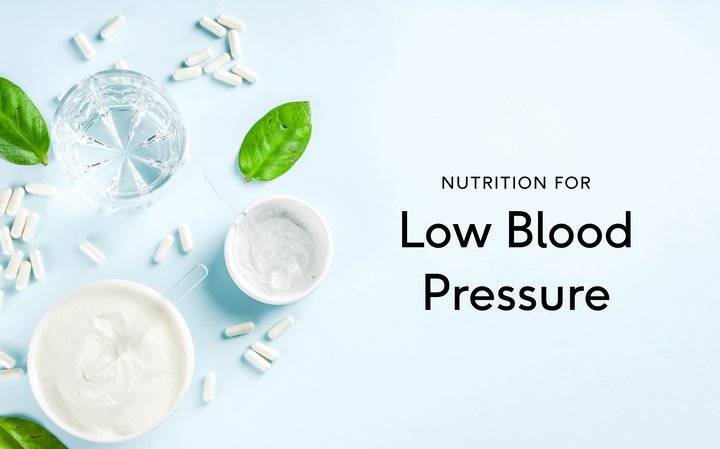Using the best form of calcium: Carbonate vs Citrate
Table of contents

Carbonate vs Citrate: Which Calcium Supplement is Best for You?
Calcium is a crucial mineral that plays an essential role in the development and maintenance of healthy bones, teeth, and muscles. It also helps regulate heart rhythm and nerve function. However, many people fail to meet their daily calcium requirements through diet alone and turn to calcium supplements to meet their needs. Two common types of calcium supplements are calcium carbonate and calcium citrate. In this article, we'll explore the differences between carbonate and citrate and which one is better for specific health concerns
Is Citrate and Carbonate the Same?
No, calcium carbonate and calcium citrate are not the same. The main difference between the two is their chemical composition. Calcium carbonate is the most common form of calcium supplement and is derived from limestone, marble, or chalk. It contains 40% elemental calcium, meaning that 1,000mg of calcium carbonate provides 400mg of elemental calcium. On the other hand, calcium citrate contains 21% elemental calcium, meaning that 1,000mg of calcium citrate provides 210mg of elemental calcium.
Calcium Citrate vs Calcium Carbonate: Which is Better?
There's no one-size-fits-all answer to this question, as the best supplement for you depends on your individual health needs. However, here are some factors to consider when deciding between calcium citrate and calcium carbonate:
- Absorption: Calcium citrate is more easily absorbed by the body than calcium carbonate especially for people who have low stomach acid low stomach acid take acid-reducing medications. However, calcium carbonate can be taken with food, which can enhance its absorption.
- Cost: Calcium carbonate is typically less expensive than calcium citrate.
- Calcium Content: Calcium Carbonate contains more elemental calcium per dose than calcium citrate.
- Side effects: Calcium carbonate can cause constipation in some people, while calcium citrate is less likely to have this side effect.
Which is Better for Osteoporosis: Calcium Citrate Or Calcium Carbonate
Osteoporosis is a bone disease that causes bones to become brittle and fragile. It's most commonly seen in older adults, especially women after menopause. Both calcium citrate and calcium carbonate can help prevent and treat osteoporosis by providing the body with the calcium it needs to build and maintain strong bones. However, studies have shown that calcium citrate may be more effective than calcium carbonate for improving bone mineral density in postmenopausal women (1). Another study found that calcium citrate was better absorbed by women with osteoporosis than calcium carbonate (2).
Is Calcium Citrate Better than Calcium Carbonate for Constipation?
Calcium Carbonate has been known to cause constipation in some people. In contrast, calcium citrate is less likely to cause this side effect. One study compared the effects of calcium carbonate and calcium citrate on constipation in women and found that calcium citrate was more effective at relieving symptoms (3). However, it's important to note that constipation can have various causes, and calcium supplements may not be effective for everyone.
Which Is Better for Bone Health: Calcium Citrate or Carbonate?
Both calcium citrate and calcium carbonate can help maintain strong bones and prevent osteoporosis. However, calcium citrate may be more easily absorbed by the body, making it a better option for people with low stomach acid or those who take acid-reducing medications. Calcium carbonate can be taken with food to enhance its absorption, but it may cause constipation in some people.
Does Citrate Have More of an Effect than Carbonate?
Some studies have suggested that calcium citrate may be more effective than calcium carbonate for certain health concerns, such as bone health and constipation. However, more research is needed to confirm these findings. Ultimately, the best calcium supplement for you depends on your individual health needs, and you should consult with your healthcare provider before starting any new supplement regimen.
Foods that contain calcium carbonate:
- Dairy Products such as milk, cheese, and yogurt
- Leafy green vegetables such as kale and collard greens
- Fortified foods such as orange juice, cereal, and tofu
Foods that contain calcium citrate:
- Citrus fruits such as oranges and grapefruit
- Vegetables such as broccoli and sweet potatoes
- Fortified foods such as cereal and fruit juice
Vitamin supplements that contain calcium carbonate:
- Caltrate
- Tums
- Viactiv
Vitamin supplements that contain calcium citrate:
- Citracal
- Solgar Calcium Citrate with Vitamin D3
- Thorne Research Calcium Citrate
Conclusion
Calcium is an essential mineral that plays a vital role in maintaining strong bones and overall health. Calcium supplements can help ensure that you're meeting your daily calcium requirements, but it's important to choose the right supplement for your individual needs. Calcium carbonate and calcium citrate are two common types of calcium supplements, each with its benefits and drawbacks. While calcium citrate may be more easily absorbed by the body and less likely to cause constipation, calcium carbonate contains more elemental calcium per dose and is typically less expensive. Consult with your healthcare provider to determine which calcium supplement is right for you.
- Reid IR, Mason B, Horne A, et al. Randomized controlled trial of calcium in healthy older women. Am J Med. 2006;119(9):777-785. doi:10.1016/j.amjmed.2006.03.031
- Boonen S, Vanderschueren D, Haentjens P, Lips P. Calcium and vitamin D in the prevention and treatment of ostepoerosis - a clinical update. J Intern Med. 2006;259(6):539-552. doi:10.1111/j.1365-2796.2006.01616.x
- Di Stefano M, Miceli E, Armellini E, Missanelli A, Corazza GR. Pro- and prebiotic effects on the colonic epithelial cell development. Ital J Gastroenterol Hepatol. 1999;31(8):640-644.
- Heaney RP, Dowell MS, Barger-Lux MJ. Absorption of calcium as the carbonate and citrate salts, with some observations on method. Osteoporos Int. 1999;9(1):19-23. doi: 10.1007/s001980050109.
- Heller HJ, Greer LG, Haynes SD, Poindexter JR, Pak CY. Pharmacokinetic and pharmacodynamic comparison of two calcium supplements in postmenopausal women. J Clin Pharmacol. 2000;40(11):1237-1244. doi:10.1177/00912700022008983
- Matkovic V, Kostial K, Simonovic I, Buzina R, Brodarec A, Nordin BE. Bone status and fracture rates in two regions of Yugoslavia. Am J Clin Nutr. 1979;32(3):540-549. doi:10.1093/ajcn/32.3.540
- Straub DA. Calcium supplementation in clinical practice: a review of forms, doses, and indications. Nutr Clin Pract. 2007;22(3):286-296. doi:10.1177/0115426507022003286
- U.S. Department of Agriculture, Agricultural Research Service. USDA Food Composition Databases. Available at: https://ndb.nal.usda.gov/ndb/. Accessed March 24, 2023.
- Calcium supplements. NHS Inform. Available at: https://www.nhsinform.scot/healthy-living/food-and-nutrition/vitamins-minerals-and-supplements/calcium-supplements. Accessed March 24, 2023.
- Calcium Supplements. European Food Safety Authority. Available at: https://www.efsa.europa.eu/en/topics/topic/calcium-supplements. Accessed March 24, 2023.
- Calcium Supplements MedlinePlus. Available at: https://medlineplus.gov/druginfo/meds/a601032.html. Accessed March 24, 2023.
- Calcium Supplements: Should You Take Them?. Harvard Health Publishing. Available at: https://www.health.harvard.edu/staying-healthy/calcium-supplements-should-you-take-them. Accessed March 24, 2023.
- Weaver CM, Alexander DD, Boushey CJ, et al. Calcium plus vitamin D supplementation and risk of fractures: an updated meta-analysis from the National Osteoporosis Foundation. Osteoporos Int. 2016;27(1):367-376. doi: 10.1007/s00198-015-3386-5










































 Back
Back





